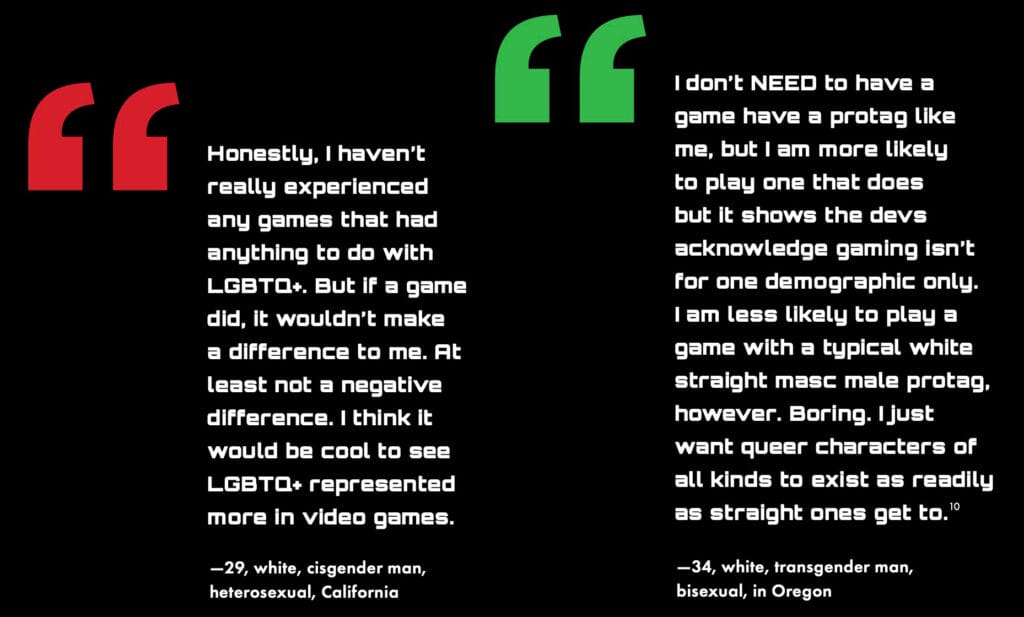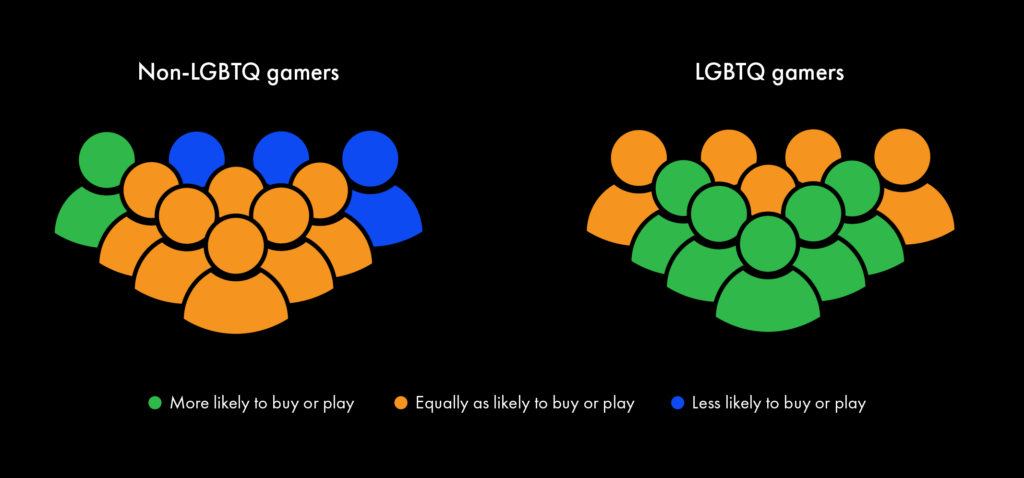Opinions on LGBTQ Main Characters
A recent large-scale study of representation in video games shows that among the top 100 games sold in the United Kingdom in 2017, women characters accounted for only 22% of all characters and people of color only accounted for 20% of all characters.7 Research from the LGBTQ Game Archive on games released between 1985 and 2005 finds that less than 30% of LGBTQ characters were playable characters.8 Building on that work, Cody Mejeur and Xavier Ho have shown that in the context of all games released between 1985 and 2020, very few video game characters were LGBTQ and those that were LGBTQ tended to be cisgender men and white.9 Games are a medium in which players can be anything, but the game industry has continued to rely on very narrow representational options.
Game companies have avoided making more games with central LGBTQ characters because they have assumed that the majority of the gaming audience would not be interested in or openly reject such games. However, our research found that having games with central/main LGBTQ characters would make no difference to the majority of non-LGBTQ gamers. 
The majority of Non-LGBTQ gamers are not dissuaded by representation, and LGBTQ gamers are much more likely to play a game with representation
Impact of an LGBTQ main playable character on likelihood to buy or play a game

When it comes to playing as a main character who is gay, lesbian, bisexual, or transgender, over 60% of non-LGBTQ gamers say that it would not make a difference in their decision to buy or play a game. Perhaps surprisingly, 8% of non-LGBTQ gamers would be more likely to buy or play a game with a gay or transgender main player character (and the numbers are even higher for lesbian or bisexual main characters).
It is important to note that of non-LGBTQ gamers,18–34-year-olds are least likely to be dissuaded by LGBTQ content. Further analysis shows that non-LGBTQ gamers of color are less resistant to games with LGBTQ main characters than non-LGBTQ white gamers. White, non-LGBTQ gamers are 15% to 23% more likely than non-LGBTQ gamers of color to avoid buying or playing a game after learning the game’s main playable character is LGBTQ.
Among all cohorts we studied, the biggest net negative is among the lowest monthly spenders.11 In fact, heavy/core gamers have a less than 10% difference between those who would be more versus less likely to buy a game with a gay man, lesbian, or bisexual main character.
Notably, LGBTQ gamers are 4–5 times more likely than non-LGBTQ gamers to buy or play a game because it allows them to play as an LGBTQ main character. The buying power of the LGBTQ community and our allies far outweighs any detractors.












